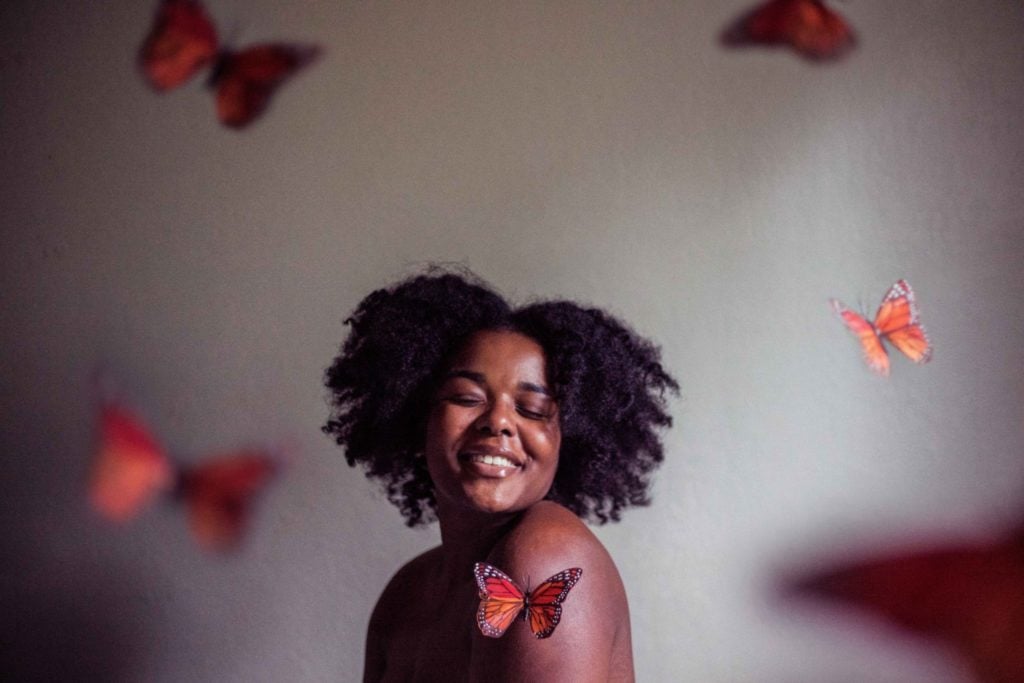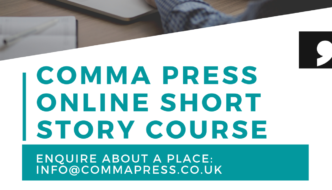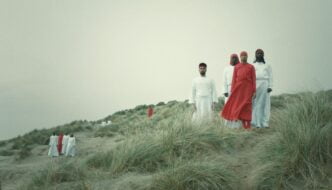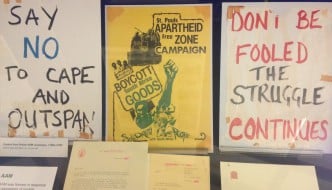The Northern Fiction Alliance Column: 7 ways to make better use of Black History Month
October 19, 2019

Jessica Felicio, Unsplash
Many publishers, bookstores and events programmers want to get involved in Black History Month, but either don’t know where to begin or how to make their events a success. Peepal Tree Press’ Adam Lowe shares his experience of programming for Black History Month over the last 12 years.
1. Involve Black people in your audiences all year round.
This one is perhaps so obvious it shouldn’t need saying – but that’s even more reason it does.
Black History Month isn’t just about scoring points one month of the year. If you have BAME authors and books that appeal to BAME audiences all year round, then that’s a loyal audience you might see spending its money all year round too.
BAME readers regularly find themselves turning to a handful of specialist imprints who meet their needs. They reward those imprints with their loyalty and enthusiasm—but you don’t have to be niche to be appealing.
2. Plan ahead. Please, please, please plan ahead.
As a Black writer, there’s nothing worse than getting an invitation to perform for Black History Month on or after the 1st October.
Let’s be honest: most BAME writers are really busy at this time of year, so it’s best to book in advance. September is probably too late already…
And while we’re at it, don’t skimp on your BHM events. Underpaid and overworked writers don’t make for exhilarating guests. Outside of promoting their latest book, many writers will (and should) expect to be paid.
Pay authors properly, and writers and organisers alike will all get much more out of this month than if we rush, cut corners and pay lousy fees.
3. ‘Blackness’ doesn’t look like one thing
The word ‘Black’ has had different meanings at different times. When Peepal Tree Press says ‘Black British’, we usually qualify that with a line about UK-based ‘writers of African and Asian descent’ (how far back that descent goes is up to you).
Equally importantly, though, Black people are also queer, and disabled, and women, and parents, and elderly, and from across social classes. Think about that when you plan your events.
Is your Caribbean event actually all Afro-Caribbean? What about Caribbeans who are indigenous to the islands or whose families descended from Asia or the Middle East?
Is your line up ethnically diverse, but accidentally comprised solely of men? That could be an issue unless you’re intentionally doing an all-male panel.
4. Don’t rely on the old networks
You may have a mailing list of 20,000 people who love books, but are they the right people for the right books? Don’t rest on your haunches and expect BAME audiences to materialise out of thin air.
Try reaching out to the audiences you want to attract in the places they want to go.
That event about Black hair? Advertise it in Black hair salons.
That Caribbean cookery book? Advertise it in Black takeaways or international food stores.
If you want the community to come, reach out to them in their community centres. Check your demographics. Are you really going to reach the same people at Brixton Carnival as you would outside the gates of Buckingham Palace?
5. Mix it up
Don’t just trot out the same books every year. Keeping it varied keeps it fresh. That may mean you have to continue to work with more Black writers going forward, but that’s likely to be taken as a positive sign. Invest in us and we invest in you.
If you actually put your money where your mouth is, we’re more likely to attend your events and pick up your books.
6. Black history isn’t all American history
This is a big one. It’s great reading about Laverne Cox again, but you do realise there are Black people here, too, right? Do some research and dig deep. Surprise us.
Black History Month is as much about learning as it is about celebrating.
7. History doesn’t always have to be heartwarming
Black history has some lows but there are many highs too. Don’t focus solely on the grim stuff, but don’t make it all sweetness and light, too.
Heroes can be complex and histories can be ambiguous. Don’t be afraid to show all of it.
Let your Black authors lead you on this. They probably have some ideas about what gaps they’d like you to explore and how.
—
About Peepal Tree Press
Peepal Tree Press aims to bring you the very best of international writing from the Caribbean, its diasporas and the UK. Its goal is always to publish books that make a difference, and though it always wants to achieve the best possible sales, it’s most concerned with whether a book will still be alive in the future.
Peepal Tree is a wholly independent company, founded in 1985, and now publishing around 20 books a year. The press has published over 300 titles, and is committed to keeping most of them in print. The list features new writers and established voices. In 2009 it launched the Caribbean Modern Classics Series, which restores to print essential books from the past with new introductions.
Peepal Tree is grateful for financial support from Arts Council England as a National Portfolio Organisation since 2011 (it was a regularly funded organisation from 2006). Arts Council funding allows the press to sustain Inscribe, a writer development project that supports writers of African & Asian descent in England.
About Adam Lowe
Adam Lowe is a writer and publisher from Leeds, who now lives and works in Manchester. He is responsible for Peepal Tree’s social media and publicity, and has been with the press since 2010.
Adam has been active as a published writer, journalist and facilitator since at least 2002, when he started writing poetry for his sixth form magazine and ran the creative writing enhancement in his free time. He runs events, competitions and magazines, and is a keen advocate for new writing.
In 2012, his pamphlet Precocious (Fruit Bruise Press) was a reader nomination for the Guardian First Book Prize, and his poetry has featured in The Guardian Poem of the Week, Ten: The New Wave (Bloodaxe) and Best British Poetry 2015 (Salt Publishing). In 2013, he toured his solo show, ‘Ecstasies’, which began at Contact. In 2019, his poem ‘Bone Railroad’ was Poem of the Week in the Yorkshire Times.
Filed under: Written & Spoken Word
Tagged with: black, Black History Month, northern fiction alliance, october, Peepal Tree Press, publishing, writers



Comments